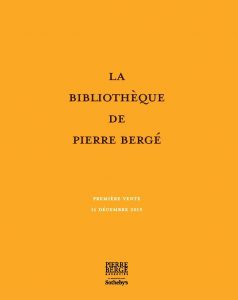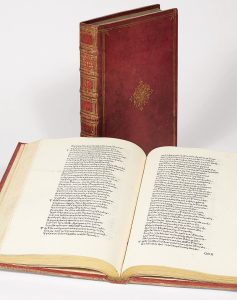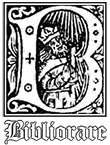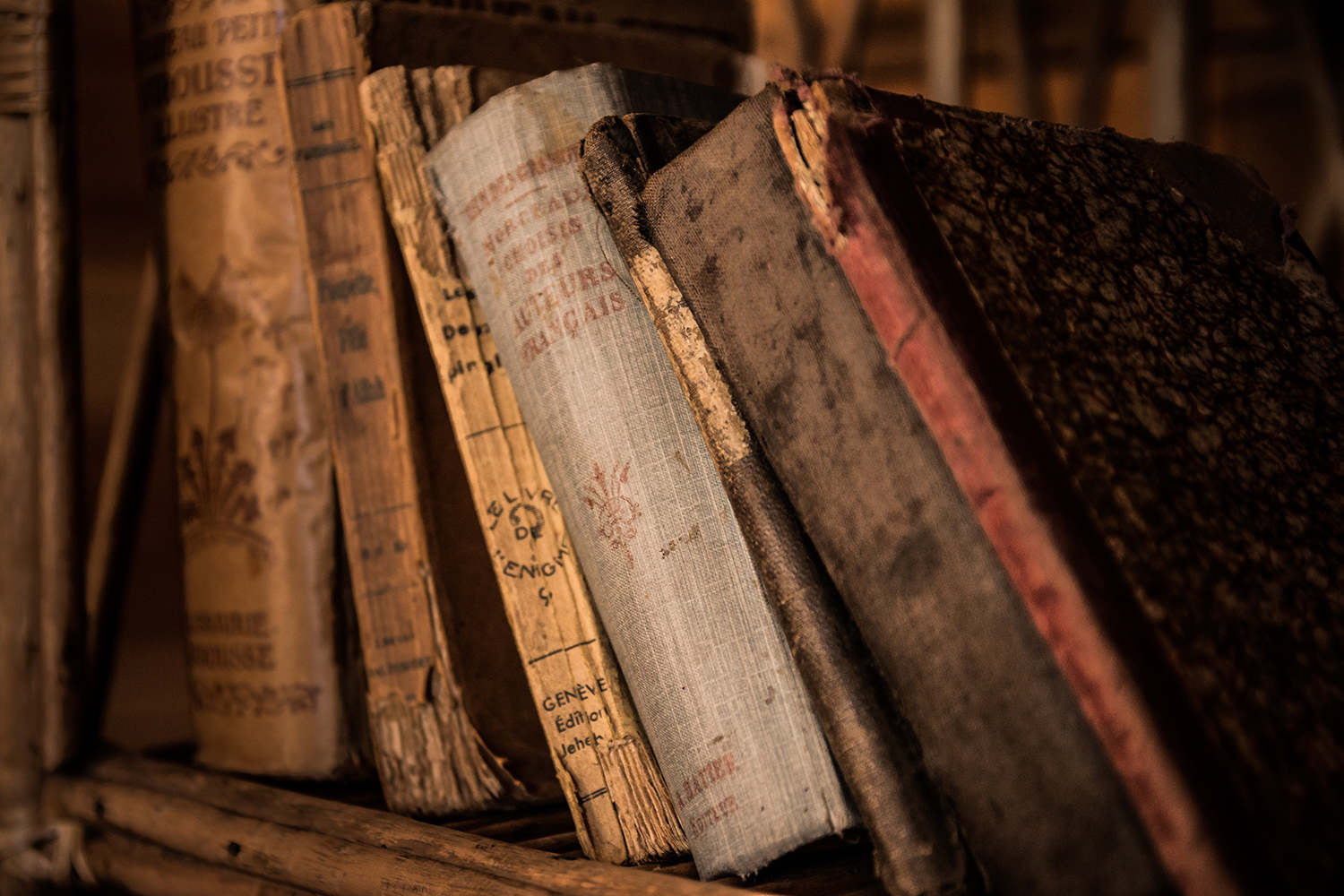HOMÈRE. Opera [en grec]. Firenze, Demetrius Damilas pour Bernardus et Nerius Nerli, 1488. 2 volumes in-folio de (250) et (189) ff. : maroquin rouge, dos à nerfs ornés de caissons de filets et roulettes dorés, triple filet doré encadrant les...
Description
fleuron central doré à petits fers au centre, coupes décorées, tranches dorées
(reliure anglaise de la fin du XVII e siècle).
PRÉCIEUSE ÉDITION PRINCEPS.
Le texte, préparé par l’humaniste et philosophe grec Demetrius Chalcondyles (1423-1511),
fut imprimé aux frais des frères Nerli, sous le patronage du cardinal Bessarion.
Ce magnifique incunable florentin marque une date importante dans l’histoire de l’hellénisme
et de la typographie.
L’imprimeur Demetrius Damilas a repris les caractères utilisés pour ses Erotemata (Milan, 1476)
– le premier livre imprimé en grec –, ainsi que les types employés par Bonus Accursius pour les
premières éditions d’Esope et de Craton. “Damilas emporta avec lui les empreintes des caractères
à Florence, où il exécuta une refonte complète avec ajouts pour cette édition d’Homère.
Ces beaux caractères n’ont été réutilisés que dans trois ouvrages” (Proctor).
“The Iliad and the Odyssey are the perfect poetry of the western world. The spring fully grown, their
predecessors lost, and their magic has persisted ever since. The legends of the siege of Troy and the
return of Odysseus are the common heritage of all. The beauty of Helen, the courage of Hector, the
grief of Achilles for Patroclus, the meeting of Nausicaa and Odysseus, the magic of Circe, all these are
now a part of the mythology of Europe. It matters not whether they were first written or handed down
orally, whether both are by the same poet, whether the poet was Homer – all these and many other
unanswered questions are secondary to the perennial appeal of the narrative and the poetry.
The form, the action and the words have had incalculable influence on the form, action and words
of poetry ever since; the composition of the Aenid, the Divine Comedy, Paradise Lost, and many others,
has been determined by the Iliad and the Odyssey” (Printing and the Mind of Man) .
Bel exemplaire, revêtu d’une reliure anglaise en maroquin rouge décoré exécutée à la
fin du XVIIe siècle ou dans les premières années du siècle suivant.
L’exemplaire a été relié pour Charles Spencer, comte de Sunderland (1674-1722), l’un des plus fameux
bibliophiles anglais, et porte sa cote de bibliothèque. Il appartint ensuite au baron Horace de Landau
(1824-1905), avec ex-libris (catalogue 1948, nº 57), puis à Albert Herman (1890-1969), avec ex-libris
de la Broxbourne Library (catalogue 1977, nº 166), et enfin, à Helmut N. Friedlaender, avec ex-libris
(catalogue New York, 2001, nº 56).
Quelques brèves annotations anciennes en grec, portant des corrections au texte ou aux signatures.
Le dernier feuillet blanc n’a pas été conservé.
Taches à l’intérieur, plus prononcées en tête et à la fin de chaque tome.
Goff, H-300.- Brunet, III, 268.- Proctor, 6194.- Printing and the Mind of Man, nº 31.- IGI, 4795.- BMC, VI, 678.



